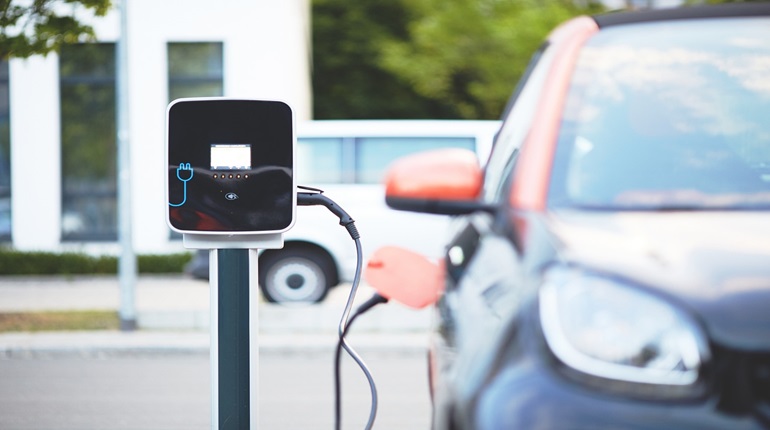Are you thinking about purchasing a used electric car UK? This post will go over the benefits and drawbacks of buying a used car to help you make the best decision. As we face an energy crisis and work toward a 2030 ban on gasoline and diesel vehicles, you may consider switching to an electric vehicle.
This is a significant change for many people, so before you make the switch, let’s define an electric car and whether it’s the best option for you. If you are considering purchasing a used electric vehicle, keep in mind that you must conduct thorough research to ensure that you are purchasing a high-quality vehicle.
This includes conducting a free car check before buying an electric vehicle to ensure its history and performance.
Table of contents
What exactly is an electric car?
An electric car runs on electricity rather than gasoline. As battery technology has improved, electric cars have grown in popularity. Electric vehicles are much more efficient than gas vehicles and emit no emissions, making them better for the environment.
People are increasingly buying electric vehicles. Almost every car manufacturer sells at least one electric vehicle. And, as the charging network grows, owning an electric car becomes more accessible. Cars with zero emissions are becoming increasingly popular.
How do electric vehicles work?
Electric vehicles operate by storing electrical energy in a battery. This stored energy is then used to power an electric vehicle, turning the wheels. Plugging the car into an electrical outlet or charging station charges the battery.
Most electric vehicles can travel approximately 100 miles on a single charge, though this varies depending on the model. Electric vehicles are classified into two types: all-electric and hybrid.
All-electric cars run entirely on electricity, whereas hybrid vehicles use electricity and gasoline. Combinations are more popular because they have a more excellent range than all-electric vehicles and can be less expensive.
What are the benefits of buying an electric car in the UK?
Emission Free:
One of the best aspects of electric car is that they emit no emissions. This means that they do not pollute the air in the same way that gas cars do. Electric vehicles are significantly better for the environment, a major selling point for many people.
However, many electric car charging stations use National Grid power, which may not be environmentally friendly. While some electricity is generated by renewable sources such as wind farms and solar panels, the majority is still generated by coal, nuclear energy, and gas stations.
So, while your car emits no emissions while driving, the system that powers it isn’t completely emission-free.
Less expensive to operate:
Electric cars not only save you money on gas, but they also don’t require tune-ups or oil changes. And, because they have far fewer moving parts than gas cars, their maintenance is less expensive, even if battery problems can be costly if not covered by warranty.
Over time, electric vehicles are less expensive to operate than gasoline vehicles.
Excellent service:
Another advantage of electric vehicles is their incredible acceleration. Electric motors produce full torque at 0 RPM and accelerate quickly from 0 to 60 MPH. Many people enjoy the rush of rapid acceleration, which can be useful for getting on the highway or passing other vehicles.
Electric vehicles are significantly quieter, which improves performance and quality of life. Electric vehicles use less energy in stop-and-go traffic, and electric motors respond faster than mechanical engines.
All of these factors work together to improve the driving experience for both the driver and the passengers.
Tax advantages in UK:
Another fantastic advantage of owning an electric vehicle is saving money on taxes in the United Kingdom.
Electric vehicles are exempt from taxation due to their zero-emission status. Compared to gasoline or diesel cars, that’s significant annual savings—hundreds of pounds!
What are the drawbacks of buying an electric car?
High initial investment:
Although electric vehicles are less expensive to operate over time, the initial cost can be prohibitively expensive. Electric cars can cost up to £30,000, whereas comparable petrol cars can cost as little as £15,000.
Many people are put off by the high initial investment required for an electric vehicle. This could change as technology advances and electric vehicles become more popular.
Range anxiety:
One of the most serious issues with electric vehicles is range anxiety. This refers to the concern that the car will run out of fuel before arriving at the destination. This can be a significant issue if there are no charging stations along the route or if the journey is lengthy.
However, as electric vehicle technology improves and charging infrastructure expands, range anxiety becomes less of an issue.
Newer electric vehicles have significantly greater range than older models, and there are now significantly more charging stations available.
Charging is inconvenient:
Another disadvantage of electric vehicles is that they can be difficult to charge. Depending on the charger used, it can take anywhere from an hour to 12 hours to fully charge the car.
This is particularly inconvenient if you’re in a hurry or on a long road trip. While the infrastructure for electric vehicle charging points Despite recent improvements, there is still work to be done to make it more accessible.
For example, having only three charging stations at your local supermarket is unlikely to suffice when most cars require one.
The cost of auto insurance:
The premium for electric car insurance is typically 20% to 30% higher than for a regular gasoline car. The high value of electric vehicles is the primary cause of this cost increase. Replacement parts are also more expensive, and there is a lack of competition in the electric vehicle insurance market.
So there you have it: the advantages and disadvantages of buying electric vehicles. Weighing the pros and cons of any major purchase is critical, and an electric car is no exception. Consider your needs and research to determine whether an electric vehicle is appropriate for you.
If you are considering purchasing a used electric vehicle, do your homework to ensure that you are getting a good deal.
Intelligent data use can also be extremely beneficial in satellite navigation systems and other types of route-mapping technology.
Is it worth buying a used electric car in the UK?
When considering the purchase of a used electric car in the UK, there are several factors to keep in mind:
- Budget: Determine your budget and explore the used electric car market to see what options are available within your price range.
- Charging Infrastructure: Assess the availability of charging stations in your area and along your regular routes to ensure convenient charging.
- Range: Consider the range of the used electric car and whether it suits your daily commuting needs.
- Battery Health: Check the battery health of the used electric car, as this is a crucial component affecting the vehicle’s performance.
- Maintenance History: Request the maintenance history of the car to ensure it has been well cared for.
Top 10 cheapest EV in UK 2023:
- Smart EQ ForTwo
- MG4 EV
- Fiat 500
- Nissan Leaf
- MINI Electric
- Renault ZOE
- Mazda MX-30
- MG ZS EV
- MG5 EV
- Peugeot e-208
Answering your questions
How much does it cost to fully charge an electric car UK?
The cost to fully charge an electric car in the UK can vary, but on average, it’s around £7 to £10 for a full charge at home. Charging at public stations may cost more, depending on the provider and your car’s battery capacity.
Is it cheaper to run an electric car than a petrol UK?
Yes, running an electric car in the UK is generally cheaper than a petrol car. Electricity costs less per mile compared to petrol, and electric cars have lower maintenance expenses due to fewer moving parts. Plus, you can benefit from government incentives and reduced road tax.
Do electric cars increase your electric bill in the UK?
Yes, charging an electric car can increase your electric bill in the UK, but the overall cost is usually lower than the fuel costs for a petrol or diesel car. Charging costs depend on your car’s battery size and the electricity rate in your area.








